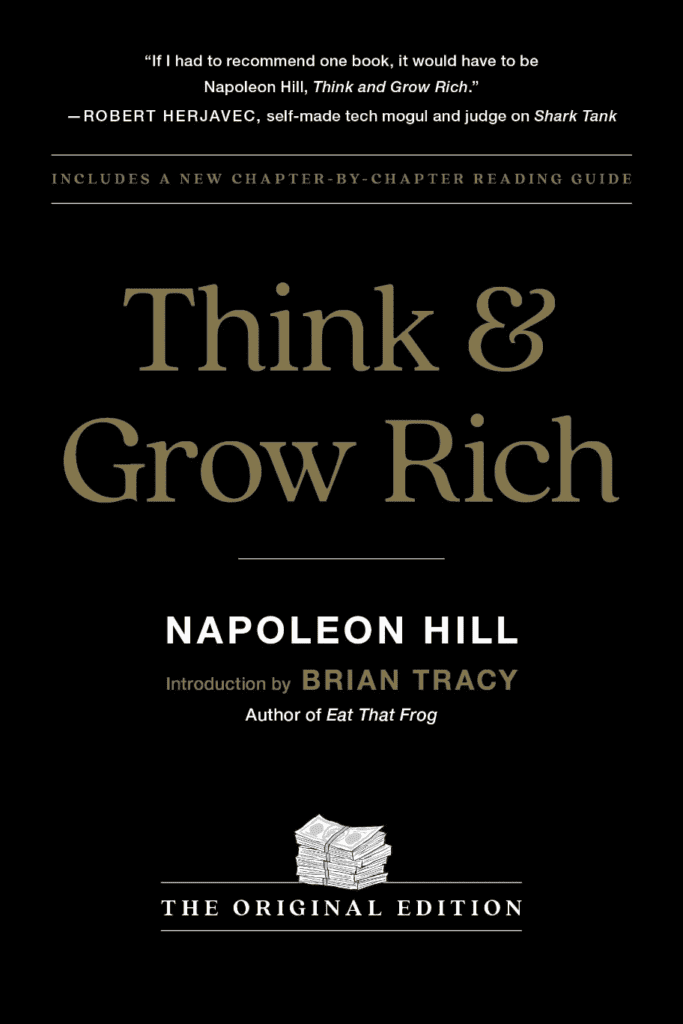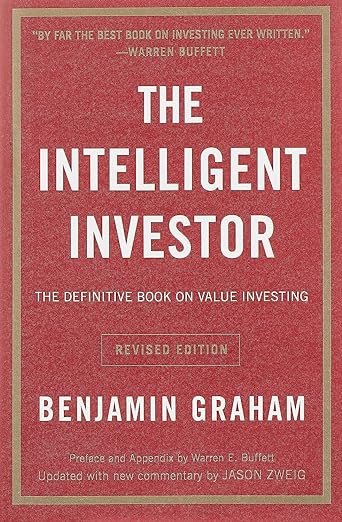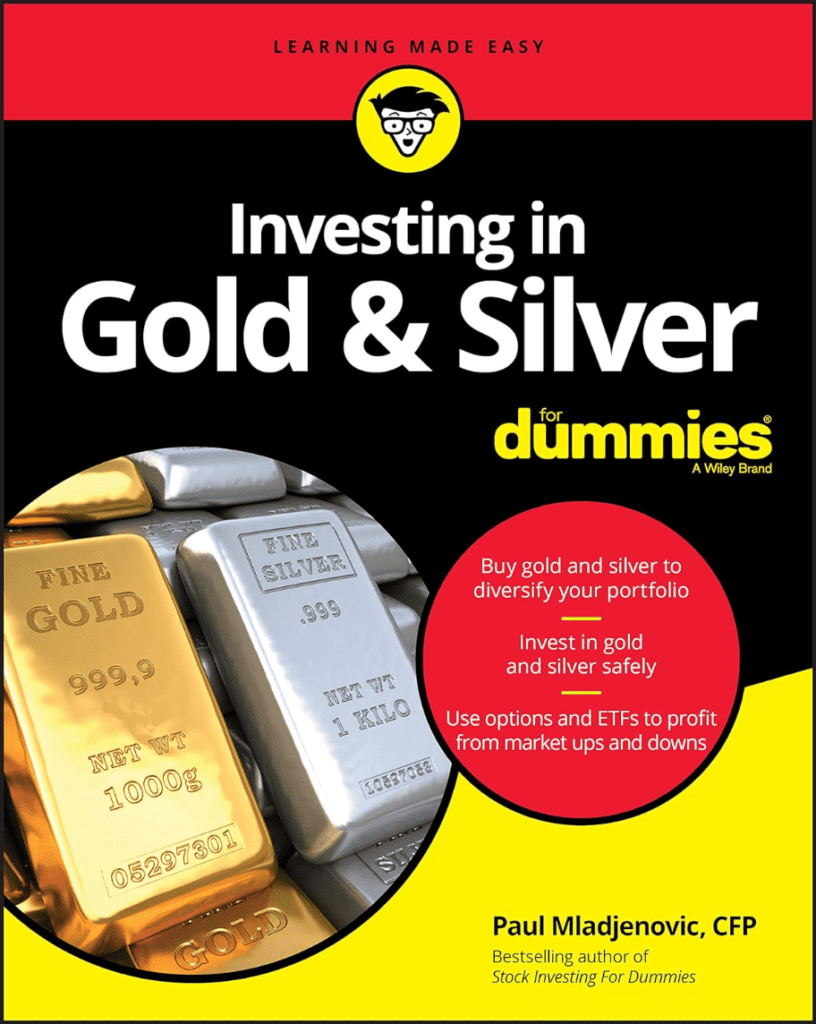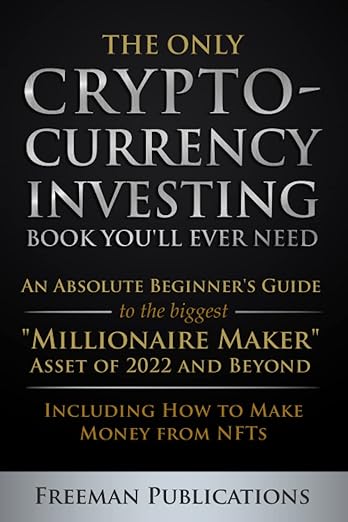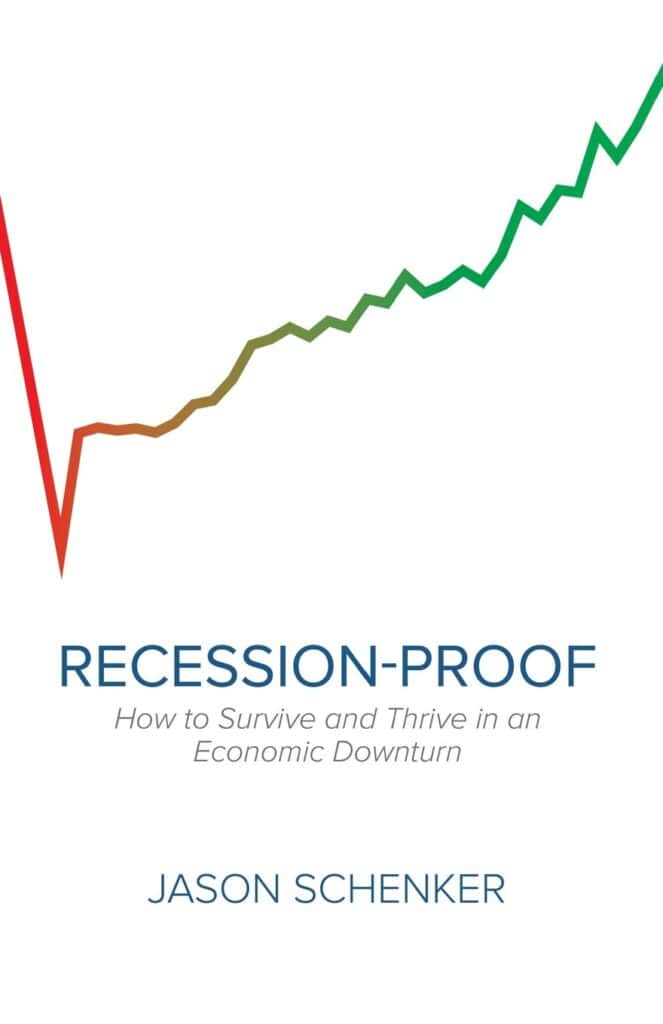Kickstart Your Financial Journey Today: 7 Best Investing Books for Beginners (2024)
If you’ve been longing to embark on your financial journey but feel hindered by a lack of skills, knowledge, funds, or time, fear not.
In this blog post, I’ll introduce you to seven of the best investment books for beginners. These books not only address these concerns but also offer straightforward information, inspiring insights, and practical advice to help you navigate the world of investing with confidence and clarity.
I’ll also share why I recommend them and how they’ve assisted me in my own financial journey. So, let’s dive in!
What Are the 7 Best Investing Books for Beginners That Can Help Kickstart Your Investment Journey?
If you’re just starting out on your financial or investment journey, I highly recommend beginning with a solid foundation of basic knowledge. Gaining inspiration from the thoughts and insights of professional investors can be incredibly beneficial.
No matter what your ultimate goal is, your current financial situation, or your age, these top investment books are ideal reading material for beginners:
1. Think & Grow Rich
Released in 1937, Napoleon Hill’s “Think & Grow Rich” explores the untapped potential of the mind and subconscious in unlocking wealth and success.
Rather than offering traditional investment strategies, it serves as a motivational roadmap, drawing on Hill’s insights gleaned from interviews with iconic figures like Andrew Carnegie and Henry Ford.
About the Author
Napoleon Hill, born in 1883, was an American self-help author known for his pioneering work in the field of personal development. He is widely regarded as one of the most influential writers on success and achievement.
Hill’s credibility stems from his extensive research and interviews with prominent figures like Andrew Carnegie, Thomas Edison, and Henry Ford, among others.
Why Do I Recommend This Book to Beginners?
While not strictly an investment book, “Think and Grow Rich” is an excellent book for beginners due to its comprehensive exploration of the mindset required for financial success.
Additionally, it distills interviews with successful individuals into several principles that can help readers achieve their personal and professional goals. These principles can be applied to various aspects of your financial journey, providing a strong foundation for beginners.
What Lessons Can Be Learned From This Book?
“Think and Grow Rich” by Napoleon Hill offers several key lessons that beginners can learn:
- The Power of Positive Thinking: Hill underscores the transformative influence of a positive mindset, emphasizing the efficacy of visualizing specific goals to materialize aspirations.
- Persistence Amid Challenges: Hill underscores the necessity of unwavering perseverance in the face of adversities, advocating for a relentless pursuit of goals fueled by an indomitable desire for success.
- Action-Oriented Approach: Hill emphasizes the imperative of taking decisive actions towards goals, contending that aspirations must be accompanied by tangible steps to translate dreams into reality.
- Financial Literacy and Growth: While not explicitly a financial manual, “Think and Grow Rich” encourages readers to foster a comprehensive understanding of financial principles and explore avenues for financial advancement.
- Conquering Fear and Self-Doubt: Hill addresses the detrimental impact of fear and self-doubt on success, offering strategies to overcome these inhibiting beliefs and advocating for the cultivation of self-confidence and resilience in pursuit of goals.
2. Poor Charlie’s Almanack
“Poor Charlie’s Almanack” isn’t a traditional book about investing, but rather a collection of speeches and writings by Charles T. Munger, the right-hand man of Warren Buffett and renowned investor.
It offers a glimpse into his unique and multifaceted mind, exploring various topics beyond just investing.
About the Author
Charles T. Munger, often referred to as “Poor Charlie,” is a captivating figure in the world of business and investing. While lacking a traditional academic background, he’s gained immense respect and credibility through his accomplishments as an investor, as well as his reputation for sound judgment and keen insight.
In addition to his role at Berkshire Hathaway, Munger has been involved in various business ventures and serves on the board of multiple companies.
His extensive experience and track record of success make him a trusted source of wisdom and guidance for investors and business leaders around the world.
Why Do I Recommend This Book to Beginners?
While many investment books focus solely on specific strategies or financial theories, Munger’s book stands out by advocating for rationality, critical thinking, and a multidisciplinary approach to decision-making.
Many beginners overlook these foundational principles, considering them too basic, and instead focus on techniques like stock picking or technical analysis. However, this approach often leads to frustration or financial losses.
“Poor Charlie’s Almanack” serves as a valuable resource for beginners aiming to establish a robust foundation in both investing and life. It transcends being merely an investment guide; it’s a manual for cultivating wisdom and attaining success across various facets of life.
What Lessons Can Be Learned From This Book?
The key lessons from “Poor Charlie’s Almanack” offer beginners valuable insights into successful investors’ mindset and strategies, laying a solid foundation for their investment journey.
These lessons include:
- Multidisciplinary Thinking: Munger advocates for acquiring knowledge across various disciplines, suggesting it enhances decision-making.
- Rationality: Munger stresses rational thinking in investment decisions, advising against emotional biases.
- Long-Term Perspective: Emphasizing long-term investing, Munger advises focusing on businesses with enduring competitive advantages.
- Understanding Human Psychology: Munger highlights cognitive biases’ influence on investments and the importance of understanding and mitigating them.
- Continuous Learning: Advocating lifelong learning, Munger emphasizes reading widely and expanding mental models.
3. The Intelligent Investor
“The Intelligent Investor” by Benjamin Graham is a classic investment book that lays the groundwork for value investing. The book equips readers with an investor’s mindset necessary to navigate market fluctuations and avoid panic-induced decisions.
Additionally, it encourages readers to focus on long-term value over short-term gains, promoting patience, discipline, and continuous learning.
About the Author
Benjamin Graham (1894-1976) was a British-born American economist, professor, and investor. He is often referred to as the “father of value investing”. He obtained his education from Columbia University where he excelled in his studies, eventually becoming a faculty member teaching finance.
Graham had a successful career on Wall Street, running the Graham-Newman Corporation, an investment fund, which consistently outperformed market averages.
His investment principles protected him and his clients from stock market crashes and helped them capitalize on market downturns.
Why Do I Recommend This Book to Beginners?
“The Intelligent Investor” by Benjamin Graham is a great resource for beginners in investing because it provides foundational knowledge and principles that are critical for understanding the world of investing.
Graham’s emphasis on value investing, where one buys stocks at a price less than their intrinsic value, teaches beginners to focus on long-term gains rather than short-term trends. The book also helps novices understand how to analyze a company’s fundamentals, equipping them with the tools to make informed decisions.
What Lessons Can Be Learned From This Book?
“The Intelligent Investor” might seem dense for absolute beginners, but here’s why it can be surprisingly valuable:
- Foundational Mindset: This book isn’t a “how-to” guide, but it instills a crucial mindset: prioritize long-term, rational investing over hype and short-term gains. This sets beginners on the right path from the start.
- Value Investing Basics: It introduces the core principles of value investing, teaching beginners to avoid overpaying for stocks and seek undervalued opportunities with strong fundamentals. This lays a solid foundation for future learning.
- Avoiding Costly Mistakes: By highlighting common investor biases and fallacies, the book helps beginners dodge emotional decision-making and impulsive trading, potentially saving them from costly mistakes.
- Long-Term Perspective: It emphasizes the importance of patience and discipline, encouraging beginners to understand that wealth building is a gradual process, not a quick fix. This fosters realistic expectations and avoids disappointment.
- Timeless Wisdom: While some examples might require updating, the core principles of rationality, value analysis, and emotional control remain relevant and valuable in any market environment.
4. Rich Dad Poor Dad
“Rich Dad Poor Dad” is a personal finance classic written by Robert T. Kiyosaki.
The book is essentially a comparison of two different perspectives on wealth and investing – one from Kiyosaki’s own father, a highly educated man yet poor (the ‘Poor Dad’), and the other from the father of his childhood best friend, a self-made multimillionaire (the ‘Rich Dad’).
It has been a bestseller for many years.
About the Author
Robert T. Kiyosaki is a renowned entrepreneur, investor, and motivational speaker. He gained international fame through his best-selling book series, which includes “Rich Dad Poor Dad” as its flagship title. Kiyosaki’s background includes experience in real estate investing, business ownership, and financial education.
His work has inspired millions of readers worldwide to pursue entrepreneurship, investment, and personal development as paths to financial success.
Why Do I Recommend This Book to Beginners?
The book breaks down complex financial concepts into simple, understandable terms, making it accessible for those who are new to the world of investing.
Robert Kiyosaki uses storytelling effectively to explain the difference between assets and liabilities, the importance of cash flow, and the concept of making money work for you instead of working for money.
What Lessons Can Be Learned From This Book?
“Rich Dad Poor Dad” is filled with insights and lessons that are especially useful for beginners. Here are a few key takeaways from the book:
- The Importance of Financial Education: The book stresses that financial literacy is crucial to building wealth. Understanding concepts like assets, liabilities, income, and expenses can help individuals make informed decisions about their finances.
- Assets vs. Liabilities: Kiyosaki defines an asset as something that puts money into your pocket, and a liability as something that takes money out of your pocket. The book encourages the accumulation of assets (such as real estate, businesses, stocks, and bonds) and the reduction of liabilities.
- Work to Learn, Not to Earn: Kiyosaki emphasizes the importance of gaining skills and knowledge over simply working for a paycheck. This can involve taking jobs to learn specific skills, even if they don’t pay well initially.
- Making Money Work for You: Instead of trading time for money, the book advocates creating systems (like businesses or investments) that generate income for you even when you’re not actively working.
- Mindset and Attitude: The book teaches that your mindset can greatly influence your financial success. It encourages a mindset of abundance and creativity, rather than scarcity and fear.
5. Investing in Gold & Silver For Dummies
“Investing in Gold & Silver For Dummies” by Paul Mladjenovic is a comprehensive guide designed to help beginners understand the intricacies of investing in precious metals. Written in an easy-to-understand, jargon-free style, the book aims to demystify the processes and vehicles for buying gold and silver.
About the Author
Paul Mladjenovic is a certified financial planner, consultant, and author with over 30 years of experience in the field of finance and investing.
He has written several books in the “For Dummies” series, including “Stock Investing for Dummies”, “Micro-Entrepreneurship for Dummies”, and “Precious Metal Investing for Dummies”. His books have been praised for their clear, accessible style and practical advice.
Why Do I Recommend This Book to Beginners?
One of the major benefits of reading this book is its comprehensive coverage of the subject matter. It explains the different ways to invest in gold and silver, including buying stocks, opening an IRA, or purchasing bullion or jewelry.
This gives beginners a broad understanding of the various options available to them.
The book also discusses the benefits of investing in gold and silver, such as portfolio diversification and hedging against inflation. These insights can help beginners make informed decisions about whether and how to include precious metals in their investment strategy.
What Lessons Can Be Learned From This Book?
“Investing in Gold & Silver For Dummies” offers several key lessons for beginners looking to invest in precious metals:
- Understanding the Basics: The book provides a comprehensive introduction to what gold and silver investing entails. It explains the difference between various forms of investments like bullion, coins, stocks, ETFs, and mutual funds, helping beginners understand where they might want to put their money.
- Diversification: One of the primary lessons is the importance of portfolio diversification. Mladjenovic emphasizes that gold and silver should not be the only assets in one’s portfolio but should be used as a part of a diversified investment strategy.
- Market Timing: The book discusses the significance of market timing in investing in precious metals. It guides readers on when it might be a good time to buy or sell, based on market conditions and economic indicators.
6. The Only Cryptocurrency Investing Book You’ll Ever Need
“The Only Cryptocurrency Investing Book You’ll Ever Need: An Absolute Beginner’s Guide to the Biggest ‘Millionaire Maker’ Asset of 2022 and Beyond” serves as a comprehensive guide for beginners interested in cryptocurrency investing.
It provides an introduction to buying, selling, and investing in digital currencies.
Why Do I Recommend This Book to Beginners?
As cryptocurrencies continue to gain popularity and significance in the financial world, many beginners seek reliable resources to understand the fundamentals of investing in this emerging asset class.
This book promises to offer a beginner-friendly approach, covering essential topics such as how cryptocurrencies work, how to get started with investing, and strategies for navigating the volatile cryptocurrency market.
What Lessons Can Be Learned From This Book?
Specific lessons that beginners can learn from “The Only Cryptocurrency Investing Book You’ll Ever Need” include:
- Understanding Cryptocurrency Basics: The book likely provides an introduction to what cryptocurrencies are, how they function, and the technology behind them, ensuring beginners grasp the fundamental concepts.
- Getting Started with Investing: It may offer guidance on how to set up accounts on cryptocurrency exchanges, purchase cryptocurrencies, and store them securely in digital wallets.
- Risk Management: Beginners may learn about the risks associated with cryptocurrency investing, such as market volatility, security concerns, and regulatory uncertainties, and how to mitigate these risks.
- Staying Informed: It may stress the importance of staying informed about industry news, technological developments, regulatory changes, and market trends to make informed investment decisions.
- Long-Term Perspective: The book might advocate for adopting a long-term perspective in cryptocurrency investing, focusing on the potential of blockchain technology and the growth prospects of cryptocurrencies over time.
7. Recession-Proof
“Recession-Proof: How to Survive and Thrive in an Economic Downturn” is a comprehensive guide written by Jason Schenker that provides valuable insights and practical strategies for individuals, businesses, and investors to navigate economic downturns successfully.
The book covers various aspects of financial planning, risk management, investment strategies, and business resilience.
About the Author
Jason Schenker is an internationally recognized financial expert and the founder of Prestige Economics, a financial market research firm. He has been ranked as one of the most accurate financial forecasters and futurists in the world.
His impressive track record includes correctly predicting the Great Recession of 2008, the commodities boom of the early 2000s, and the 2015 oil price collapse.
Why Do I Recommend This Book to Beginners?
While the book may contain some advanced economic concepts, I believe beginners must grasp the fundamentals of navigating economic downturns successfully.
This book serves as an invaluable guidebook, exploring topics such as economic cycles, recession prediction, and understanding economic indicators.
By offering valuable insights and actionable advice, it empowers beginners to make informed decisions and safeguard their financial well-being during periods of economic uncertainty.
What Lessons Can Be Learned From This Book?
Beginners can learn several key lessons from the book “Recession-Proof: How to Survive and Thrive in an Economic Downturn.” Some of these lessons include:
- Understanding Economic Cycles: The book offers a primer on economic cycles, teaching readers how to identify different stages of the economy and predict potential downturns.
- Strategies for Financial Stability: Schenker provides six strategies to recession-proof your finances. These actionable tips can help beginners safeguard their financial well-being during periods of economic uncertainty.
- Decoding Economic Indicators: The book also teaches beginners how to interpret economic indicators, a crucial skill for making informed decisions about personal finances and investments.
- Insights into Recession-Proof Industries: Another valuable lesson is understanding which industries are typically more resilient in a recession. For example, healthcare is often considered recession-proof as people will always require medical services.
- Principles for Successful Living: Beyond just financial advice, the book imparts principles for thriving in uncertain times, such as resilience, adaptability, and forward-thinking.
Best Investing Books for Beginners (My Final Thoughts and Recommendations)
In today’s digital age, becoming a savvy investor is easier than ever. Gone are the days of sifting through library shelves or waiting for physical book deliveries. The investing books I’ve recommended can be instantly downloaded in digital format, allowing you to dive into them at your convenience.
So, why not seize this opportunity and start learning today?
Having said that, it’s important to note that these books weren’t chosen randomly from a bestseller list. They reflect my personal interests and ongoing research.
Additionally, I’ve selected them because I’ve personally read and found value in their discussions on stocks, cryptocurrencies, real estate, and gold – all assets in which I have personal investment experience.
While I’m not suggesting you should invest in these specific assets, I want you to know that my recommendations come from a place of authenticity. These books reflect the information and principles I rely on when making my own investment decisions.
Lastly, preparing for financial crises or economic downturns is a crucial aspect of investing, which is why I’ve included “Recession-Proof: How to Survive and Thrive in an Economic Downturn” in this list. While the book may delve into some advanced concepts, I firmly believe it’s essential for beginners to grasp these ideas early on.
With that said, I trust that by exploring these books, you can jumpstart your investment journey sooner and with more confidence. Above all, I hope they instill in you the significance of financial literacy, the necessity of grasping investment fundamentals, and the advantages of maintaining a long-term perspective.
Remember, investing is not just about financial security; it’s about prioritizing what truly matters in life – our relationships with God and others, our health, our family, and our loved ones.
As you embark on this exciting journey, I wish you every success. Remember, the journey of a thousand miles begins with a single step. So, take that step today, start learning, and set yourself up for a prosperous future.
By the way, if you’re an investor who wish to migrate and benefit from benefits offered by other countries, you check out my blog articles below:
- How To Move To Singapore In 2024: Real-Life Tips For Professionals, Investors, And Entrepreneurs
- How To Move To Thailand In 2024: A Comprehensive Guide For Digital Nomads, Investors, Entrepreneurs, And Retirees
Happy investing!
Disclaimer: The information and opinions expressed in this blog post are for informational purposes only and are not intended to be construed as professional advice. Please consult with a qualified professional before making any financial decisions, traveling, or purchasing a product or service. This information is also based on personal experiences and/or research at the time of writing, and new information and updates may be available on the topic being discussed. Please conduct further research before making any decisions.

